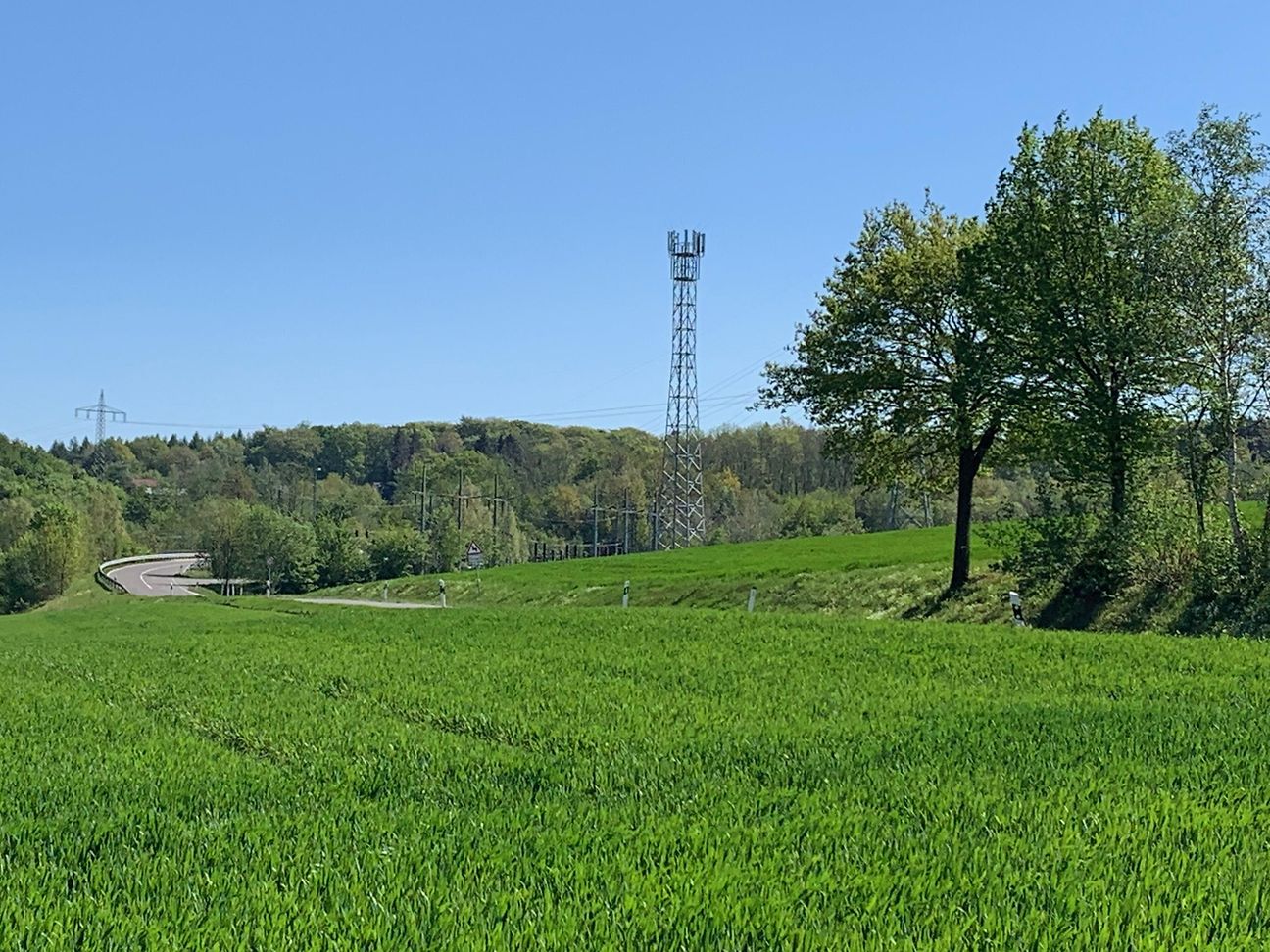

- 5G from Telekom to be available to more than half the German population by 2020
- Technology offensive currently starting with first test fields
- Fast 5G expansion even in rural areas
- New technology uses spectrum dynamically for LTE and 5G
Telekom is launching Germany's largest 5G initiative: More than half of the German population will be able to benefit from 5G in the course of the year. The Bonn-based telecommunications company is thus further expanding its leading position in 5G coverage. The rapid rollout is made possible by a technical upgrade for existing antennas in the network. The technology is currently being tested in initial test fields. Further expansion will start in the coming weeks. "We have big plans for 5G and will bring the latest mobile communications standard to large parts of Germany before the end of the year," says Telekom Deutschland CEO Dirk Wössner. "I am delighted that the network will be even better for our customers. Preparations in the network are in full swing to ensure that as many people as possible get the new technology quickly. In the city and in the countryside."
5G Upgrade for existing technology
Test runs are currently being carried out for this purpose. An example of this are two locations near Wittlich in Rhineland-Palatinate. Here the technology of the site is currently being expanded. Afterwards, the modernized system technology will be used to control the existing antenna and will be upgraded to 5G, so to speak: "We are travelling throughout Germany to test this 5G variant in our network," says Walter Goldenits, Deutsche Telekom's Head of Technology in Germany. "The test sites will then be the blueprint for Germany to supply more than half of the population in the Telekom network with 5G this year.”
With this new 5G variant, the existing passive antenna technology is optimally reused for future technologies in parallel to active antennas. In addition, a technology is being implemented that enables the parallel operation of two mobile communications standards in one frequency band: Dynamic Spectrum Sharing (DSS).
Telekom also has 5G high-speed antennas in operation in eight cities. This expansion program is also continuing in parallel.
Even more speed with LTE and 5G
By year-end, customers in all German states will have broad access to Telekom's 5G network. And not only in densely populated cities, but also in rural areas. This underlines Telekom's network strategy: Fast Internet in the city and in rural areas - with 4G and 5G.
Deutsche Telekom has already presented an eight-point program for the rapid and successful roll-out of 5G in 2018. In it, the company announces coverage with 5G for 99 percent of the population by 2025. By 2025, 90 percent of Germany's territory is to be covered with 5G. "With the current expansion offensive, we are taking a big step in this direction," says Walter Goldenits. "LTE and 5G - both technologies are gaining ground. While the 5G network continues to grow, LTE is also becoming even stronger". Already today, 98.1 percent of the population surfs with LTE and speeds of up to 300 Mbit/s.
Intelligent technologies optimize networks - in the city and in rural areas
The boost in mobile communications is made possible by the variable use of mobile frequencies and new, innovative technologies. In future, Deutsche Telekom will use 5 megahertz (MHz) from its existing 3G spectrum in the 2.1 gigahertz band for LTE and 5G. By the end of the year at the latest, Deutsche Telekom will triple the spectrum used. As a result, even more customers will benefit from surfing speeds at LTE and 5G levels this year.
5G in large cities operates on a very high frequency. High frequencies offer higher speeds. At the same time, however, they have a shorter range. At the lower 2.1 GHz frequency, the range of 5G antennas is therefore significantly higher. With this intelligent combination of available frequencies, Deutsche Telekom is significantly accelerating the expansion of 5G - especially in rural areas. Dynamic Spectrum Sharing (DSS) provides additional spectrum for LTE customers that can be used in addition to the existing spectrum.
Deutsche Telekom uses DSS in its commercial network. The radio band is then no longer used by just one mobile communications standard, but can be split between LTE and 5G according to demand. With the new technology, the network decides intelligently and dynamically for which standard it ideally uses the existing frequencies. The scarce available frequencies are thus better utilized and the network as a whole becomes much more efficient. This leads to an even better user experience for customers.
The technology offensive will also give LTE a further boost. Customers will receive a further frequency band for the use of LTE and thus more bandwidth. This means that part of the 3G spectrum can already be used for more powerful technologies, while 3G remains usable. 5G rates have been available from Deutsche Telekom for just under a year. The equipment portfolio for 5G is being gradually expanded. The first devices capable of handling the new technologies are expected to be available in the summer.
About Deutsche Telekom: Deutsche Telekom at a glance


